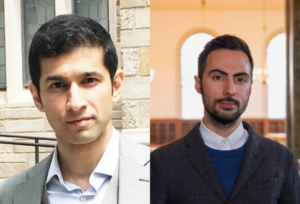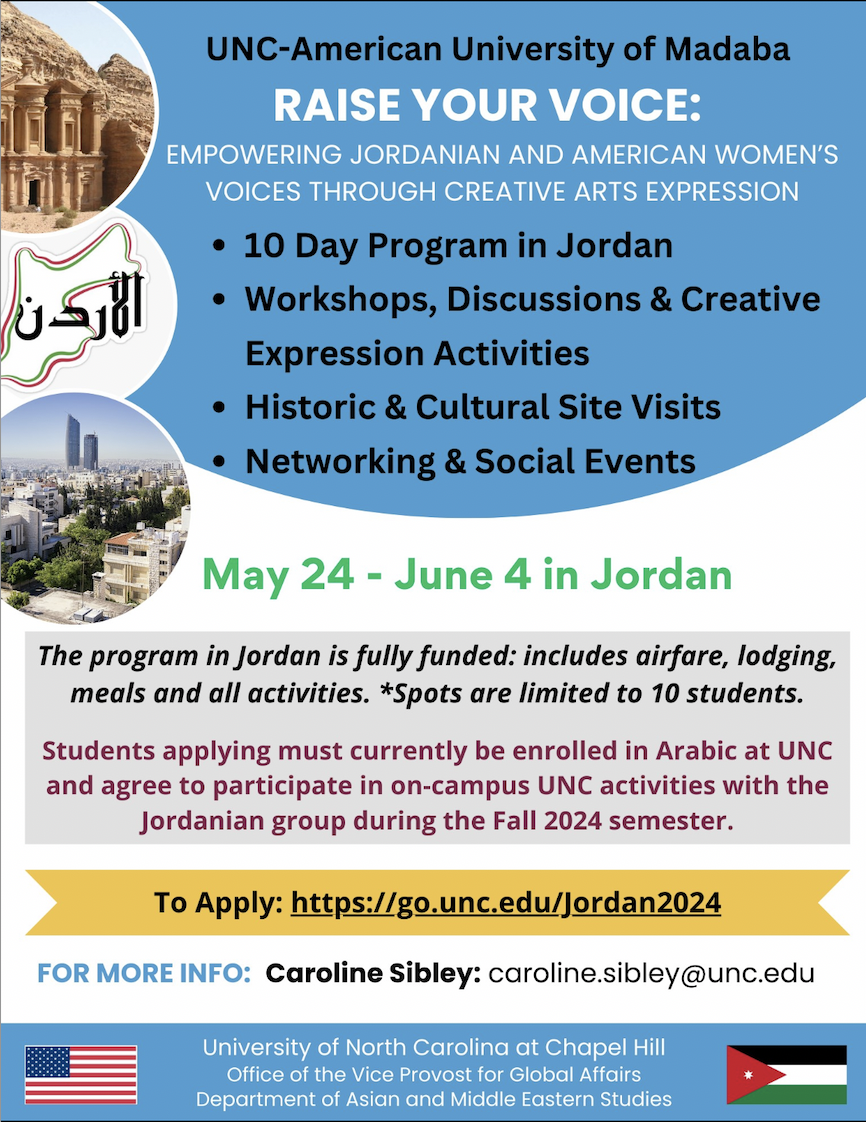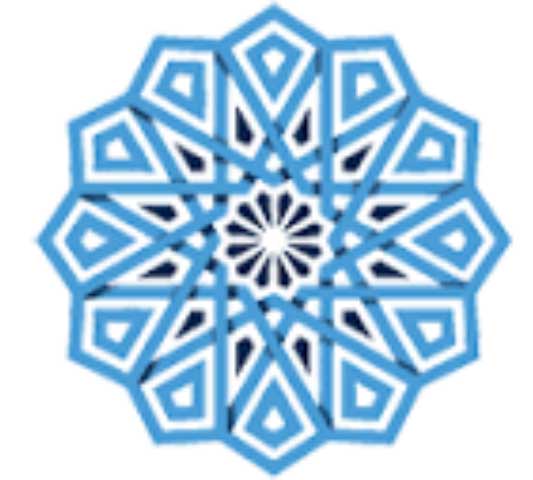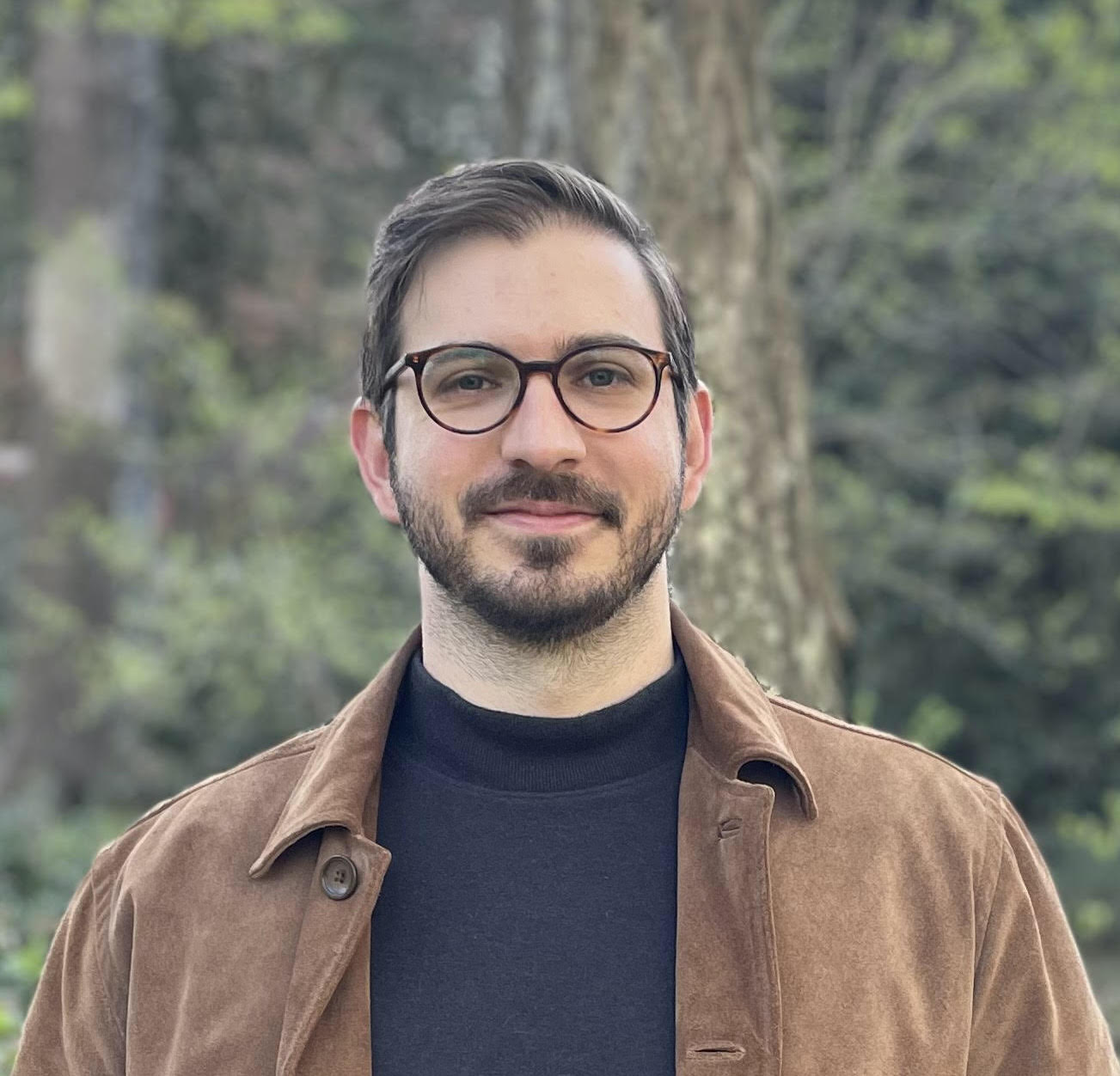
The UNC research team includes Dr. Waleed Ziad (left) and Rustin Zarkar (right).
Zarkar and Ziad’s project, “Endangered archives from Sufi shrines of the Afghan-Pakistan frontier” will involve travel to Pakistan in January 2022 to catalogue and digitize endangered archives of Sufi monasteries and shrines within Pashtun tribal regions. “These are unexplored collections revealing a rich sacred tradition in a region embroiled in one of the most brutal conflicts in recent history,” Ziad explained.
Materials they will be archiving are in Persian, Pashto, Arabic, and Urdu, ranging from locally produced biographies and letters, to texts on magic, metaphysics, and poetry, anti-extremist posters, audio recordings of Sufi masters documenting their struggle against fundamentalism, and material culture including funerary engravings and shrine art. “For example, one of the Sufi shrines contains several hundred audio cassettes documenting the oral history of the Sufi center and its critical role in anti-imperialist struggles from the late 19th century to independence,” said Ziad.
Zarkar and Ziad will be working with a team of about 14 members including librarians and graduate students from the University of Peshawar, local historians, a professional photo archivist, as well as the custodians of the Sufi shrines and collections. They will work at four religious sites in Waziristan, Peshawar and Malakand. Using a post-custodial model, the project will empower local stakeholders to preserve their collections, train them in digitization and cataloguing, and build preservation infrastructure for sustainable community-driven archiving. The sites and materials they have chosen to digitize are that of renowned Sufi saints and scholar-historians which have long been the target for looters who wish to profit off the materials and extremists who have attempted to destroy the history that the shrines hold.
“150 years of British imperial racial ethnography and ‘martial race theory’ portrayed – and treated – the Afghans (Pashtuns) as militant, fanatical, and backward. Consequently, highly racialized depictions of Afghans/Pashtuns as a fanatic people still dominate popular and academic works. This project directly challenges these persisting narratives and promotes local voices. The rare materials within these sacred sites will be of interest to scholars in religious studies, history, anthropology, sociology, and Middle Eastern, Central Asian, South Asian, and Afghanistan studies; specifically those focusing on Sufism, religious networks, resistance to extremism, British imperialism, borderland studies, nation-state formation, and classical Persianate literature and belles-lettres,” noted Zarkar and Ziad.
Zarkar will oversee the first five weeks of the archival project while gathering materials to expand UNC’s library collection, and Ziad will remain in the region to oversee the remainder of documentation of the resources. The team hopes to have the resources digitized and catalogued by the end of 2022. Then, they plan to create an interactive multilingual English, Persian/Dari, and Urdu-language website that houses the digitized files for all to access, as well as walks users through the sacred geography and history of each of the shrines and monasteries.
For decades, both U.S. and South Asia-based scholars have not been able to access this material produced in the Pakistan-Afghanistan border regions due to years of violent conflict. This initiative will be the first opportunity for scholars to study this material outside of local communities.
Abdulrahman Sarsour ‘24





